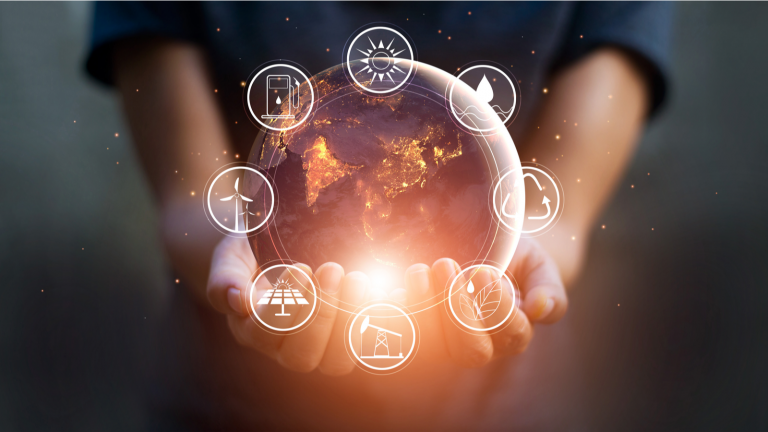There’s a lot of debate about how to best combat climate change, but evidence that climate change isn’t happening has all but evaporated. From small, almost imperceptible changes like flowers blooming much earlier in the season to an increase in large-scale natural disasters, the evidence is all around us. But if more scientific data is what you’re after, there’s the sharp increase in global surface temperatures over the past few decades. Then there’s the increasingly rapid melting ice sheet in Greenland and rising global sea levels.
The undeniable signs that our planet is heating up are troubling for many reasons— and it’s the driving force behind almost 200 countries around the world pledging to fight climate change and get to net zero emissions by 2050. There’s a lot of skepticism that countries will be able to make the necessary changes to get there, but as the impact of climate change continues to ramp up many world leaders may start to enshrine planet-protecting regulations and best practices into law.
This shift toward a more sustainable way of living could have a huge impact on the global economy. From changing how we get and use our energy to new methods of feeding the world, there are plenty of changes coming down the pipeline. For investors looking to jump on a developing trend, assessing how climate change might shape the global economic outlook moving forward is a good place to start.
Changing energy mix

There are plenty of people who claim we’ll never wean the world off fossil fuels to fight climate change. In the near term, those people are right— fossil fuels like coal, oil and natural gas are likely to remain a part of the energy mix for decades to come. But they’re probably going to make up a much smaller percentage of the total energy used as other, less carbon-intensive, sources grow in popularity. It’s a shift that might be hard to picture now, but one we’ve gone through many times in the past. From burning wood to coal and coal to oil, the world has updated its energy sources many times over.
So what’s next? Everyone talks about the potential for renewables like solar and wind, and these will be a big part of next-generation energy. But perhaps the most promising avenues for clean energy are green hydrogen and nuclear power— both of which offer more efficient energy without relying on Mother Nature. Increasing the share of hydrogen within the energy mix is said to be responsible for about 5% of emissions reductions in a net zero scenario. Likewise, an increase in nuclear energy would offer not only more reliable energy generation but lower emissions as well.
Sustainable Agriculture

Another major issue that runs parallel to climate change is unsustainable agriculture. Modern farming practices that focus on single outputs and strip the soil of nutrients have limited the number of harvests we have left. Some estimate that in the UK, where farmland is plentiful, there are likely to be about 100 harvests left if practices don’t change. Along with unsustainable practices, agriculture is also up against an ever-growing number of mouths to feed. With that in mind, it’s clear that farming as we know it today will look much different over the next few decades.
There’s likely to be a growing focus on more efficient proteins. This means foods that are high in protein but low in impact on the planet. This is likely to be a mix between lab-grown meats, efficient salmon farming, and plant-based options. There’ll also be an increased need for precision farming that uses high-tech tools to ensure the viability of crops without harming the surrounding ecosystem.
Supply chain management

You need only look back to the supply chain issues that plagued businesses around the world during the pandemic to understand how climate change will impact every business on the planet. Back in 2020, the issues had more to do with local lockdowns, but as we continue to experience severe weather events, we’re likely to see more supply chain issues crop up. Take semiconductors, for example. These tiny chips that are found in everything from your car to your calculator require a great deal of water to produce. Severe droughts have been known to slow production, leading many companies to ensure their suppliers have water-use policies that allow for minimal waste.
That’s just one industry that requires huge volumes of water. Others like mining and even data centers, which use the water for cooling, will also struggle when droughts hit. Other weather events can also wreak havoc on supply chains. Extreme weather and storms can hit local infrastructure and delay shipping times. To avoid these issues, most companies will be looking now for tighter control of their supply chains to ensure suppliers in high-risk areas have a plan in place if conditions worsen.
On the date of publication, Marie Brodbeck did not hold (either directly or indirectly) any positions in the securities mentioned in this article. The opinions expressed in this article are those of the writer, subject to the InvestorPlace.com Publishing Guidelines.
